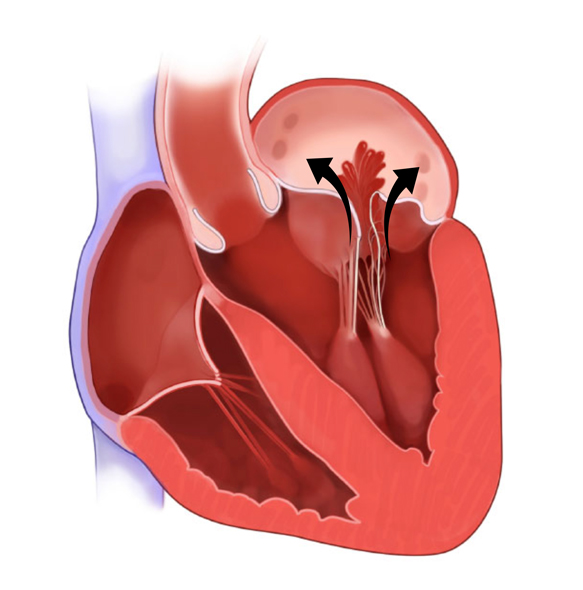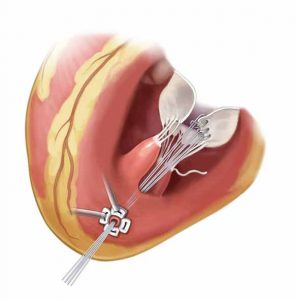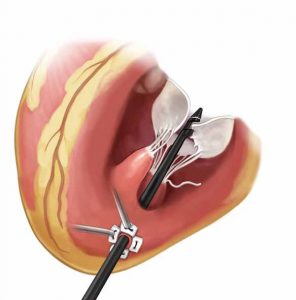
What is Mitral Regurgitation?
Mitral regurgitation is a condition in which your heart’s mitral valve doesn’t close properly, allowing leakage of blood backwards through the mitral valve. Mitral valve regurgitation usually progresses slowly over time and patients with mild regurgitation may have no symptoms until complications occur. One of the earliest signs of mitral valve regurgitation is a heart murmur. Patients with severe mitral regurgitation, may have symptoms which include shortness of breath, fatigue, lightheadedness, cough, heart palpitations and swollen feet or ankles
How is Mitral Valve Regurgitation Treated?
 There are two common treatments for mitral regurgitation:
There are two common treatments for mitral regurgitation:
Medical Therapy and Surgery. Medical Therapy includes prescription medication that can minimize symptoms associated with mitral regurgitation. Surgery to repair a leaking mitral valve is also a treatment option for patients. While surgery is an effective treatment for some cases of mitral regurgitation, it is a major procedure associated with risks. Beating heart mitral valve repair may be an option for certain patients.
 What is Beating Heart Mitral Valve Repair?
What is Beating Heart Mitral Valve Repair?
Beating heart mitral valve repair is an investigational treatment option for patients with degenerative mitral valve regurgitation. The procedure is performed through a small incision between the ribs to access the mitral valve without the need to temporarily stop the heart. Using echo-guidance, damaged or ruptured mitral valve chords are restored on the leaking segment of the mitral valve leaflet while the heart is beating.
